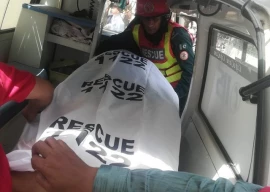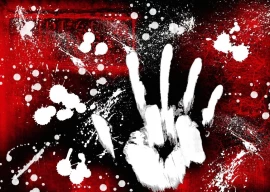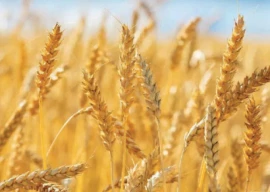
Pakistan can recognise the fact that 19% of seats in parliament are occupied by women as an accomplishment, but there is still a long way to go to meet global standards on women issues.
This was among the topics Roberta Clarke, the Asia Pacific regional director for UN WOMEN, discussed with The Express Tribune on Wednesday.
Speaking to The Express Tribune in Islamabad, Clarke said the share of women in parliament is not very high when compared with the rest of the Asia Pacific region, which has an average of 18% representation.
“It is consistent when compared to the global average, which is 20%. It is more-or-less the norm, but a low norm when it comes to meeting the 33% goal that was meant for all parliaments,” she said, adding that non-state actors also had a huge role to play in promoting the cause.
Eyeing Pakistan through a regional lens, Clarke, who oversees work in twenty countries, said that stories of success and concerns from Pakistan are contradictory in nature. By producing strong, globally-recognised women rights, Pakistan has developed a reputation as country with courageous women who are working under dangerous circumstances. At the same time, however, only 20% of women are engaged in the workforce and contributing to the formal economy, which needs to increase.
“While comparing Pakistan to the region, at times we go forward, at times we go back,” she said.
Clarke explained that mere representation of women in parliament was not the solution to women issues prevailing in the country. Moreover, relying completely on those few women to make the change was also unfair. She said that we have to put in equal trust in non-state actors and, at the same time, create awareness amongst men in parliament to accept women as equals.
She explained that although Pakistan has its specific challenges, the situation for women in the region is similar in nature.
“There is no country [in the region] where men and women are equal”.
Gender inequality concerns in Pakistan share commonalities with other countries in the region, even those with developed economies.
“Countries think they are alone in the situations they are in and they often become defensive about it,” she said. “Pakistan’s situation is shared by many other countries,” she added.
She said Pakistan, while progressing in fields of education for women, was also facing issues such as acceptance in society, being valued for the work that they produce in informal economies and gaining support from all quarters of development. “Women need to be seen as active contributors to the political economy.”
The stereotypes need to be understood and socialisation of families and societies through education and passing of policies for equal treatment of men and women can make a difference. “We need to transform cultures through education,” she said.
She said the devolution of the Ministry of Women Development was an interesting experiment which could bring communities closer to governments. “If the initiative is well established, other countries can learn also from Pakistan,” she said.
“There has to be massive investment in women. Those leading [the country] must have a vision to know that women can contribute as well as men” she said. “It’s a rich country with social justice building the momentum, we must keep pushing for the change,” she added.
She said that globally, UN Women was deeply concerned and outraged by violence against women at all levels, but great political will to counter such problems would contribute to eliminating this global epidemic.
Security and development is interconnected. “Insecurity draws attention [away] from development,” she said. She said that women’s voices have to be heard in the security debate and they should be considered agents of change. “We need to be courageous and support each other. That is a way to create a demand,” she added.
Women should have more choices that come with capabilities so that they can take care of themselves and their families. Moreover, they need to be strong enough to make choices about their bodies and integrity.
She said that incidents of violence cannot be kept in the dark as private affairs and legal cover to protect such cases was the need of the hour. “Violence against women is violence against the state. The UN and member states have agreed to zero tolerance for all sorts of violence,” said Clarke. “We need to prevent, prosecute and protect women. Women’s voices must be heard from their homes to parliament,” she added.
Published in The Express Tribune, May 29th, 2014.












































COMMENTS
Comments are moderated and generally will be posted if they are on-topic and not abusive.
For more information, please see our Comments FAQ